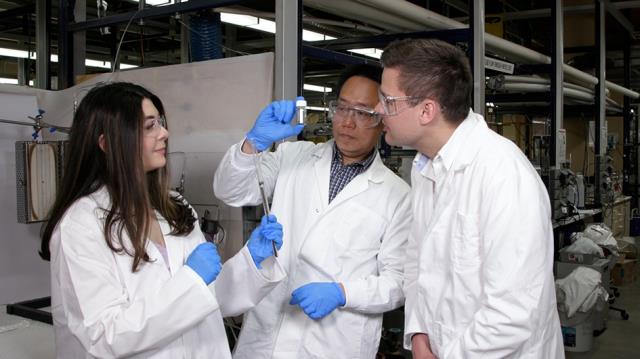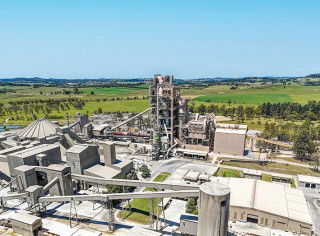Australian researchers have developed a smart and super-efficient new way of capturing carbon dioxide and converting it to solid carbon, to help advance the decarbonisation of the cement and steel industries.
The CO2 utilisation technology from researchers at RMIT University in Melbourne, Australia, is designed to be smoothly integrated into existing industrial processes. The new technology offers a pathway to instantly convert CO2 as it is produced and lock it permanently in a solid state, keeping CO2 out of the atmosphere. The research is published in the journal Energy & Environmental Science.
Co-lead researcher Associate Professor Torben Daeneke said the work built on an earlier experimental approach that used liquid metals as a catalyst. “Our new method still harnesses the power of liquid metals but the design has been modified for smoother integration into standard industrial processes,” Daeneke said. “As well as being simpler to scale up, the new tech is radically more efficient and can breakdown CO2 to carbon in an instant.
A provisional patent application has been filed for the technology and researchers have recently signed a AUD2.6m (US$1.86m) agreement with Australian environmental technology company ABR, who are commercialising technologies to decarbonise the cement and steel manufacturing industries.
The next stage in the research is scaling up the proof-of-concept to a modularised prototype the size of a shipping container, in collaboration with industry partner ABR.
ABR Project Director David Ngo said the RMIT process turns a waste product into a core ingredient in the next generation of cement blends. "Ideally the carbon we make could be turned into a value-added product, contributing to the circular economy and enabling the CCS technology to pay for itself over time," Daeneke said.

Left to right: PhD researcher Karma Zuraiqi with Dr Ken Chiang and Associate Professor Torben Daeneke. Credit: RMIT University
